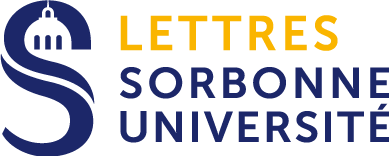Gianluca MANZO

Professeur des Universités
Professor of Sociology, Sorbonne Université (SU)
Director, Master Program in Sociology (SU)
Deputy Director (for Sociology), Doctoral School « Concepts & Languages » (ED433) (SU)
Editor, L’Année Sociologique
Member, Comité Nationale du CNRS (section 36, Sociology & Law)
Fellow, European Academy of Sociology
Past-Chair, American Sociological Association (section Rationality & Society)
Full CV (French)
Full CV (English)
Courses taught at Sorbonne University:
Social Stratification (Bachelor, 3rd year) (also taught at SU Abu Dhabi)
-> Main topic: Surveys (1st semester) and models (2nd semester) on the subjective perception of social structure
Social Network Analysis (Master, 1rs year) (also taught at SU Abu Dhabi)
-> Main topic: Ego-centered and complete network research designs (first semester); Data import, visualisation and analysis with R (2nd semester)
Computational Sociology (Master, 2nd year)
-> Main topic: Agent-based models with NetLogo
Analytical Sociology (Master, 2nd year)
-> Main topic: History, principles, and models of analytical sociology
For Master & PhD students:
Master or PhD students who would like to work on topics and/or methods that do not fall within my main research interests (see below) are invited to contact me AS LONG AS they see sociology as a scientific activity oriented towards explaining clearly identified macroscopic facts on the basis of well-defined research designs allowing to identify mechanisms that explain how we can move from the micro to the macro-level of analysis (and vice-versa).
In other words: I am not interested in critical (more or less politically committed) sociology nor in blah-blah-blah sociology exclusively based on interviews essentially leading to story-telling.
My substantive research interests are in sociological theory (namely, history and principles of analytical sociology and of action theory), in social stratification (namely, educational inequalities, social mobility, reputation hierarchies, and subjective perceptions of social structures, in particular of social classes and income distributions), and in the analysis of diffusion processes of opinions, rumors or viruses on complex social networks.
From a methodological point of view, I am especially interested in statistical techniques for causal inferences, computational methods (agent-based models in particular), methods for data collection and description of social networks as well as theoretical models of complex network topologies.












